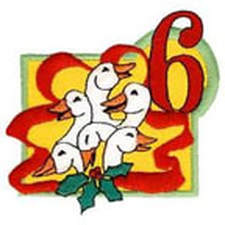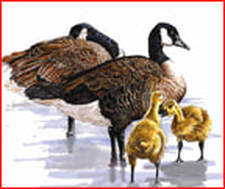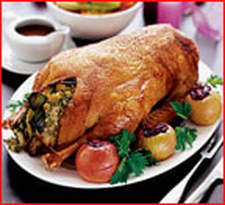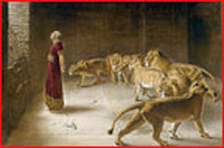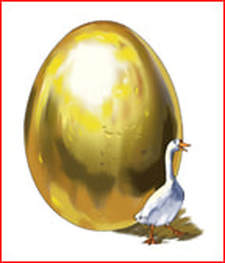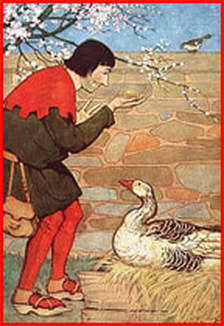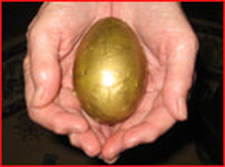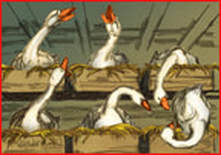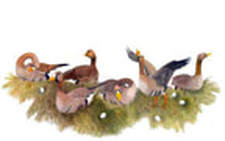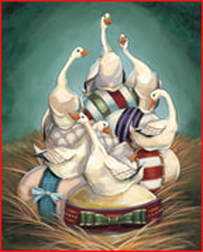| Devotion to Our Lady |
|
- Homepage
-
Daily Thoughts
- 2023 October Daily Thoughts
- Daily Thoughts Lent 2020
- Daily Thoughts for Advent 2019
- Daily Thoughts for October 2019
- Daily Thoughts for September 2019
- Daily Thoughts for August 2019
- Daily Thoughts for July
- Daily Thoughts for June
- Daily Thoughts for Easter 2019
- Daily Thoughts for Lent 2019
- Daily Thoughts for Christmas
- Daily Thoughts Easter 2022
- Sacred Heart
- Holy Ghost
-
Spiritual Life
- Holy Mass Explained
- First Friday Devotions
- First Saturday Devotions
- The Mercy of God
- Vocations
- The Path Everyone Must Walk >
- Gift of Failure
- Halloween or Hell-O-Ween?
- Ignatian Spiritual Exercises >
- Meditation is Soul-Saving
- Spiritual Communion
- Miraculous Medal
- Enrollment in Miraculous Medal
- St. Benedict Medal
- Holy Water
- Advice on Prayer
- Your Daily Mary
-
Prayers
- September Devotions
- Seven Sorrows of Our Lady
-
Novenas
>
- NV-Help of Christians
- NV-Nativity of Our Lady
- NV-Seven Sorrows
- NV- Sorrowful Heart
- NV-Pope St Pius X
- NV-La Salette
- NV-St Michael Archangel
- NV-Immaculate Heart
- NV-Assumption
- NV-Novena for Fathers
- NV-Novena for Your Mother
- NV-St Raphael Archangel
- NV-Souls in Purgatory
- NV-All Saints Day
- NV-Christ the King
- NV-Divine Motherhood
- NV-Guardian Angels
- NV-Rosary
- NV-Mirac Med
- NV- Imm Conc
- NV - Guadalupe
- NV - Nativity of Jesus
- NV-Epiphany
- NV-OL Good Success
- NV-Lourdes
- NV-St Patrick
- NV-St Joseph
- NV-Annunciation
- NV-St Louis de Montfort
- NV-OL Good Counsel
- NV-Last Supper
- NV-Passion
- NV-Pentecost
- NV-Ascension
- NV-Sacred Heart
- NV-Sacred Heart & Perpetual Help
- NV-Corpus Christi
- NV-OL of Perpetual Help
- NV-Queenship BVM
- NV-OL of Mount Carmel
- NV-St Mary Magdalen
- NV- Im Hrt
- August Devotions to IHM
- Immaculate Heart of Mary
- Litany of Dependence
- Prayers to St Mary Magdalen
- Prayers in Times of Sickness Disease & Danger
- Holy Souls in Purgatory
- Meditations on the Litany of Our Lady
- Special Feast Days
- Prayers to Mary (Mon-Sun)
- Litanies to Our Lady >
- Various & Special Needs
- Our Lady of the Rosary
- Our Lady of Mt. Carmel
- Our Lady of Perpetual Help
- Our Lady of Guadalupe
- Other titles of Our Lady
-
Rosary
- Downloads
- Consecration
- Easter Season
-
Holy Week
- Last Seven Words of Jesus >
- Characters of Passion >
- The Last Days of Christ
- Before Palm Sunday
- Palm Sunday
- Monday in Holy Week
- Tuesday in Holy Week
- Wednesday in Holy Week
- Holy Thursday (Last Supper)
- Holy Thursday (Agony & Arrest)
- Night Vigil with Christ
- Good Friday (Pilate & Herod)
- Good Friday (Way of Cross & Crucifixion)
- Saturday in Holy Week
-
Lent
- Ideas for Lent
- Daily Lenten Planner
- Daily Lenten Liturgy
- From Cold to Hot
- Lent with Aquinas
- Lent with Dom Gueranger
- Virtues for Lent
- History of Penance
- How Expensive is Sin?
- Confession of Sins
- Letter to Friends of the Cross
- Sermons for Lent
- Stations of the Cross >
- Lenten Prayers
- 7 Penitential Psalms
- Lenten Psalms SUN
- Lenten Psalms MON
- Lenten Psalms TUE
- Lenten Psalms WED
- Lenten Psalms THU
- Lenten Psalms FRI
- Lenten Psalms SAT
- Lenten Laughs
- Septuagesima
-
Christmas
- Epiphany Explained
- Suggestions for Christmas
- Food For Thought
- Christmas with Aquinas
- Christmas with Dom Gueranger
- Christmas Prayers
- Candles & Candlemas
- Christmas Sermons
- Christmas Prayers SUN
- Christmas Prayers MON
- Christmas Prayers TUE
- Christmas Prayers WED
- Christmas Prayers THU
- Christmas Prayers FRI
- Christmas Prayers SAT
- Twelve Days of Christmas >
-
Advent Journey
- Purgatory
- Christ the King
- Legion of Mary
- Scapular
-
Saints
-
Martyrs for the Faith
>
- Your Daily Martyr >
- All 365 Days of Martyrs
- Cristeros
- St Valentine & Valentine's Day
- Martyrs--Thomas Becket
- Martyrs--John the Apostle
- Holy Machabees
- Age of Martyrdom
- Carmelites of Compiegne
- Martyrs--Peter & Paul
- Martyrs--John the Baptist
- Martyrs--Andrew
- Martyrs--James the Great
- Martyrs--North American
- Martyrs--Seven Holy Sleepers
- Martyrs--Afra
- School of Martyrdom
- Martyrs--Christina
- Desert Saints >
- Saints for Sinners >
- Saints of Mary >
- History of All Saints Day
-
Martyrs for the Faith
>
- Precious Blood
- Synod 2023
-
Catechism
- Catechism Lesson 1
- Catechism Lesson 2
- Catechism Lesson 3
- Catechism Lesson 4
- Catechism Lesson 5
- Catechism Lesson 6
- Catechism Lesson 7
- Catechism Lesson 8
- Catechism Lesson 9
- Catechism Lesson 10
- Catechism Lesson 11
- Catechism Lesson 12
- Catechism Lesson 13
- Catechism Lesson 14
- Catechism Lesson 15
- Catechism Lesson 16
- Catechism Lesson 17
- Catechism Lesson 18
- Catechism Lesson 19
- Catechism Lesson 20
- Catechism Lesson 21
- Catechism Lesson 22
- Bible Study
-
Calendar
- Miracles
- Apparitions
- Shrines
- Prophecies
- Angels Homepage
- Hell
-
Church Crisis
- Conspiracy Theories
- Amazon Synod 2019 >
- Liberalism & Modernism
- Modernism--Encyclical Pascendi
- Modernism & Children
- Modernism--Documents
- The Francis Pages
- Church Enemies on Francis
- Francis Quotes
- Amoris Laetitia Critique
- Danger of Ignorance (Pius X)
- Restore all In Christ (Pius X)
- Catholic Action (Pius X)
- Another TITANIC Disaster?
- The "Errors of Russia"
- CRISIS PRAYERS
- Election Novena 2024
- The Anger Room
- War Zone
- Life of Mary
- Spiritual Gym
- Stupidity
- Coronavirus and Catholicism
- History & Facts
- Books
- Catholic Family
- Children
- Daily Quiz
-
Novena Church & Pope
- Day 01 Church-Pope Novena
- Day 02 Church-Pope Novena
- Day 03 Church-Pope Novena
- Day 04 Church-Pope Novena
- Day 05 Church-Pope Novena
- Day 06 Church-Pope Novena
- Day 07 Church-Pope Novena
- Day 08 Church-Pope Novena
- Day 09 Church-Pope Novena
- Day 10 Church-Pope Novena
- Day 11 Church-Pope Novena
- Day 12 Church-Pope Novena
- Day 13 Church-Pope Novena
- Day 14 Church-Pope Novena
- Day 15 Church-Pope Novena
- Day 16 Church-Pope Novena
- Day 17 Church-Pope Novena
- Day 18 Church-Pope Novena
- Day 19 Church-Pope Novena
- Day 20 Church-Pope Novena
- Day 21 Church-Pope Novena
- Day 22 Church-Pope Novena
- Day 23 Church-Pope Novena
- Day 24 Church-Pope Novena
- Day 25 Church-Pope Novena
- Day 26 Church-Pope Novena
- Day 27 Church-Pope Novena
- Day 28 Church-Pope Novena
- Day 29 Church-Pope Novena
- Day 30 Church-Pope Novena
- Day 31 Church-Pope Novena
- Day 32 Church-Pope Novena
- Day 33 Church-Pope Novena
- Day 34 Church-Pope Novena
- Day 35 Church-Pope Novena
- Day 36 Church-Pope Novena
- Day 37 Church-Pope Novena
- Day 38 Church-Pope Novena
- Day 39 Church-Pope Novena
- Day 40 Church-Pope Novena
- Day 41 Church-Pope Novena
- Day 42 Church-Pope Novena
- Day 43 Church-Pope Novena
- Day 44 Church-Pope Novena
- Day 45 Church-Pope Novena
- Day 46 Church-Pope Novena
- Day 47 Church-Pope Novena
- Day 48 Church-Pope Novena
- Day 49 Church-Pope Novena
- Day 50 Church-Pope Novena
- Day 51 Church-Pope Novena
- Day 52 Church-Pope Novena
- Day 53 Church-Pope Novena
- Day 54 Church-Pope Novena
- Penance Novena
- Daily WeAtheR Forecast
CLICK ON ANY CHRISTMAS LINK BELOW
(most links are available now, the other links will activated shortly)
TWELVE DAYS OF CHRISTMAS
| 12 Day Homepage | 1st Day of Christmas | 2nd Day of Christmas | 3rd Day of Christmas |
| 4th Day of Christmas | 5th Day of Christmas | 6th Day of Christmas | 7th Day of Christmas
| 8th Day of Christmas | 9th Day of Christmas | 10th Day of Christmas | 11th Day of Christmas | 12th Day of Christmas |
PRAYING THE PSALMS THROUGH CHRISTMAS
| Sundays | Mondays | Tuesdays | Wednesdays | Thursdays | Fridays | Saturdays |
SPIRITUAL READING THROUGH CHRISTMAS
| St. Thomas Aquinas on Christmas | Dom Gueranger on Christmas |
(most links are available now, the other links will activated shortly)
TWELVE DAYS OF CHRISTMAS
| 12 Day Homepage | 1st Day of Christmas | 2nd Day of Christmas | 3rd Day of Christmas |
| 4th Day of Christmas | 5th Day of Christmas | 6th Day of Christmas | 7th Day of Christmas
| 8th Day of Christmas | 9th Day of Christmas | 10th Day of Christmas | 11th Day of Christmas | 12th Day of Christmas |
PRAYING THE PSALMS THROUGH CHRISTMAS
| Sundays | Mondays | Tuesdays | Wednesdays | Thursdays | Fridays | Saturdays |
SPIRITUAL READING THROUGH CHRISTMAS
| St. Thomas Aquinas on Christmas | Dom Gueranger on Christmas |
THE CONTROVERSY OVER THE SONG "THE TWELVE DAYS OF CHRISTMAS"
In the last 20 or so years, there has been quite a bit of controversy over the song The Twelve Days of Christmas. Some say it was a cryptic catechism song, used by the persecuted Catholics of England as a means to teach their children some rudimentary teachings of the Faith under the disguise of a seemingly harmless song. Others contest this, by saying that there is no evidence to back-up this claim and say that the alleged points of doctrine to be found hidden in the song, are ... (click here to read more)
"...Six Geese-A-Laying"
|
THE NUMBER SIX
The number SIX brings many spiritual things to mind, here are just a few of them: The SIX days in which God created at the beginning of time. The SIX days that commanded man to work. The SIX hundred years of age that Noe was at the time of the Great Flood. The SIX members that Noe and his wife took with them into the ark: their three sons with their three wives. The SIX days that the mountain was covered by a cloud, before God called Moses into it to speak to him. The SIX branches that God wanted on each of the golden candlesticks for the Tabernacle. The SIX years of sowing the fields and pruning the vineyards upon entering the Promised land (7th year to lie fallow). The SIX days that Daniel was in the Lion's Den. The SIX days Jesus waited before taking Peter, James and John up the mountain for His Transfiguration. The SIX pots of water that Jesus changed into wine at the Marriage Feast at Cana. The SIX days Jesus spent with Mary, Martha and Lazarus in Bethania before the Pasch and His Passion and Death. The SIX wings that each angel has that stands guard around Almighty God. The SIX contained in the number of the Antichrist, 666. The SIX chief Commandments of the Church. The SIX candles that were traditionally lit during a sung High Mass. THE SYMBOLISM OF THE GOOSE Geese are waterfowl, with the name "goose", strictly speaking, being given to the female, and the name "gander" being given to the male. Young birds, under 1 year of age, are goslings. You may have heard of the expression of "What's good for the goose, is good for the gander", meaning what's good for you is good for me. This tribe of waterfowl comprises the genera Anser (the grey geese), Branta (the black geese) and Chen (the white geese). A number of other birds, mostly related to the shelducks have "goose" as part of their name. More distantly related members of theAnatidae family are swans, most of which are larger than true geese, and ducks, which are smaller. The word “goose” is linked to the word “goost” or “ghoost” meaning “ghost” or “Spirit” as in “Holy Ghost” or “Holy Spirit.” It comes from the Anglo-Saxon word “gos.” The geese a-laying represent God creating. The number of geese—six—represents the number of days of creation. The goose was also seen as being a “sacred” bird. The expression “silly goose” is not slanderous, but pious in origin. It means blessed, happy, innocent and gentle. Experts say the goose is not a foolish fowl, but “the wisest bird in Europe.” GOOSE FOR CHRISTMAS Goose has a distinct flavor which makes it a favorite European Christmas dish. In Germany, roasted goose is a staple for Christmas Day meals, though it used to be common too in early centuries in England. Roast goose is also a popular ingredient for post-Christmas meals. In modern times, it has generally been replaced by the turkey in the United Kingdom and also in some places in the United States. Yet, conversely, goose is often an alternative to turkey on European Christmas tables. THE PHRASE "COOKED YOUR GOOSE" OR "MY GOOSE IS COOKED" “You cooked your goose” or "my goose is cooked" means something like “that’s the end...finality, all is lost.” It came from a time when people kept their producing animals around as long as they could, rather than cook and eat them. The goose provides eggs. You kept it until it stopped laying. If you “cooked your goose”, you were really desperate and did a desperate thing, but a thing that ended up in failure and now you are in trouble. You’re going to lose if you’ve “cooked your goose”. The phrase “cooked (someone’s) goose” means to destroy someone`s future chances or destroy someone’s reputation. This statement simply means that the person whose “goose is cooked” is ‘done for’; in trouble; ‘in the stew’. Adam and Even “cooked their goose” when they sinned! DANIEL ALMOST HAD "HIS GOOSE COOKED" IN THE LION'S DEN "And they came to the king, and said: 'Deliver us Daniel, or else we will destroy thee and thy house!' And the king saw that they pressed upon him violently: and being constrained by necessity he delivered Daniel to them. And they cast him into the den of lions, and he was there six days. And in the den there were seven lions, and they had given to them two carcasses every day, and two sheep: but then they were not given unto them, that they might devour Daniel" (Daniel 14:28-31). As we all know, Daniel came out of his ordeal unscathed. In the end it was Daniel's enemies who "had their goose cooked." STORY OF THE GOOSE THAT LAID THE GOLDEN EGGS The goose also has a moral message in the famous Aesop’s fable, “The Goose that laid the Golden Egg”: if you let your greed get out of control, you may lose everything. Though the story apparently comes from Aesop's Fables, it nevertheless is in line with Christ's teaching regarding the pleasures and treasures of the world, and aligns itself perfectly with the Bible's and Church's teaching against the evils of the so-called "Seven Deadly Sins" or Seven Capital Sins, of which avarice or greed or covetousness (call it by which name you want) is a part. There are many, many variations of the story; we present two of them here: ONE VERSION OF THE STORY Once upon a time, there was a farmer that was struggling to pay his bills. His clothes were tattered, and his home in bad shape. However, he managed to save a little money each time he sold vegetables from his farm. Eventually he saved up enough money to buy a goose. He took it home and made a nest for it to lay eggs. The goose will produce eggs for selling and eating and making bread, thought the farmer. The next morning when he went to gather some eggs for his breakfast, he lifted the goose and to his surprise, the goose had laid a golden egg. The next morning, he found another egg, and the next, and the next. The farmer was so happy because he was able to pay his bills, buy some clothes and was living quite well. One day the farmer got impatient, he wanted all the eggs. So he took the goose and cut it open, only to find that there were no golden eggs inside. ANOTHER VERSION OF THE STORY One day a countryman going to the nest of his Goose found there an egg all yellow and glittering. When he took it up it was as heavy as lead and he was going to throw it away, because he thought a trick had been played upon him. But he took it home on second thoughts, and soon found to his delight that it was an egg of pure gold. Every morning the same thing occurred, and he soon became rich by selling his eggs. As he grew rich he grew greedy; and thinking to get at once all the gold the Goose could give, he killed it and opened it only to find … — NOTHING! The moral of the tale is blatantly obvious to the mind, but very hard to practice in real life. Today, in the modern consumer society, greed, covetousness, avarice and hoarding seem to be canonized as virtues by the worldly. The world wants to get all it can out of everyone it can as often as it can. Paradoxically, never has the world been as 'poor' as it is today. For by casting out God, it becomes poor. God is the 'Golden Goose' and it is God's Providence that lays eggs for each one of us. When we deem that what God gives is insufficient for us, we risk not only a dead goose, but also a dead soul; in other words, a soul that is dead to God and the things of God, which are the real treasures that we have here below. THE TRUE GOLDEN EGGS Our true "golden eggs" are things like the Holy Eucharist, the Holy Sacrifice of the Mass, the Holy Rosary, devotion to Our Lady, Holy Scripture, the writings of the Fathers, Doctors and Saints of the Church, spiritual exercises, spiritual friends rather than worldly ones, mortification, the cross, etc. etc. These are the treasure to store up in Heaven where they will be in safe keeping, awaiting us: “Jesus saith to him: ‘If thou wilt be perfect, go sell what thou hast, and give to the poor, and thou shalt have treasure in Heaven: and come follow Me!’ And when the young man had heard this word, he went away sad: for he had great possessions. Then Jesus said to His disciples: ‘Amen, I say to you, that a rich man shall hardly enter into the Kingdom of Heaven. And again I say to you: It is easier for a camel to pass through the eye of a needle, than for a rich man to enter into the Kingdom of Heaven” (Matthew 19:21-24). “Lay not up to yourselves treasures on earth: where the rust, and moth consume, and where thieves break through and steal. But lay up to yourselves treasures in Heaven: where neither the rust nor moth doth consume, and where thieves do not break through, nor steal. For where thy treasure is, there is thy heart also” (Matthew 6:19-21). SHARING SPIRITUAL EGGS MAKES US ALL THE MORE RICHER So let us learn from this to seek the true treasures, which are spiritual treasures. When we share these spiritual treasures, we do not impoverish ourselves, but we enrich ourselves. Here is what Fr. Garrigou-Lagrange, O.P., one of last century's greatest spiritual theologians, has to say on the matter: "The pressing need of devoting ourselves to the consideration of the one thing necessary is especially manifest in these days of general chaos and unrest, when so many men and nations, neglecting their true destiny, give themselves up entirely to acquiring earthly possessions, failing to realize how inferior these are to the everlasting riches of the spirit. And yet St. Augustine's saying is so clearly true, that "material goods, unlike those of the spirit, cannot belong wholly and simultaneously to more than one person." The same house, the same land, cannot belong completely to several people at once, nor the same territory to several nations. And herein lies the reason of that unhappy conflict of interests which arises from the feverish quest of these earthly possessions. "On the other hand, as St. Augustine often reminds us, the same spiritual treasure can belong in its entirety to all men, and at the same time to each, without any disturbance of peace between them. Indeed, the more there are to enjoy them in common the more completely do we possess them. The same truth, the same virtue, the same God, can belong to us all in like manner, and yet none of us embarrasses his fellow-possessors. Such are the inexhaustible riches of the spirit that they can be the property of all and yet satisfy the desires of each. Indeed, only then do we possess a truth completely when we teach it to others, when we make others share our contemplation; only then do we truly love a virtue when we wish others to love it also; only then do we wholly love God when we desire to make Him loved by all. Give money away, or spend it, and it is no longer yours. But give God to others, and you possess Him more fully for yourself." (Fr. Garrigou-Lagrange, The Three Conversions of the Spiritual Life). GEESE TEACH US TO CARE God did not only create, but by His Providence, He looks after His creation. Similarly, if a member of the flock falls ill or is injured by hunters, two geese from the flock will fall back with the injured goose. The two geese will stay with their injured companion until it either dies or is well enough to again embark on their journey to warmer climes. They are also fiercely protective of their young and defend them bravely. |
Web Hosting by Just Host

